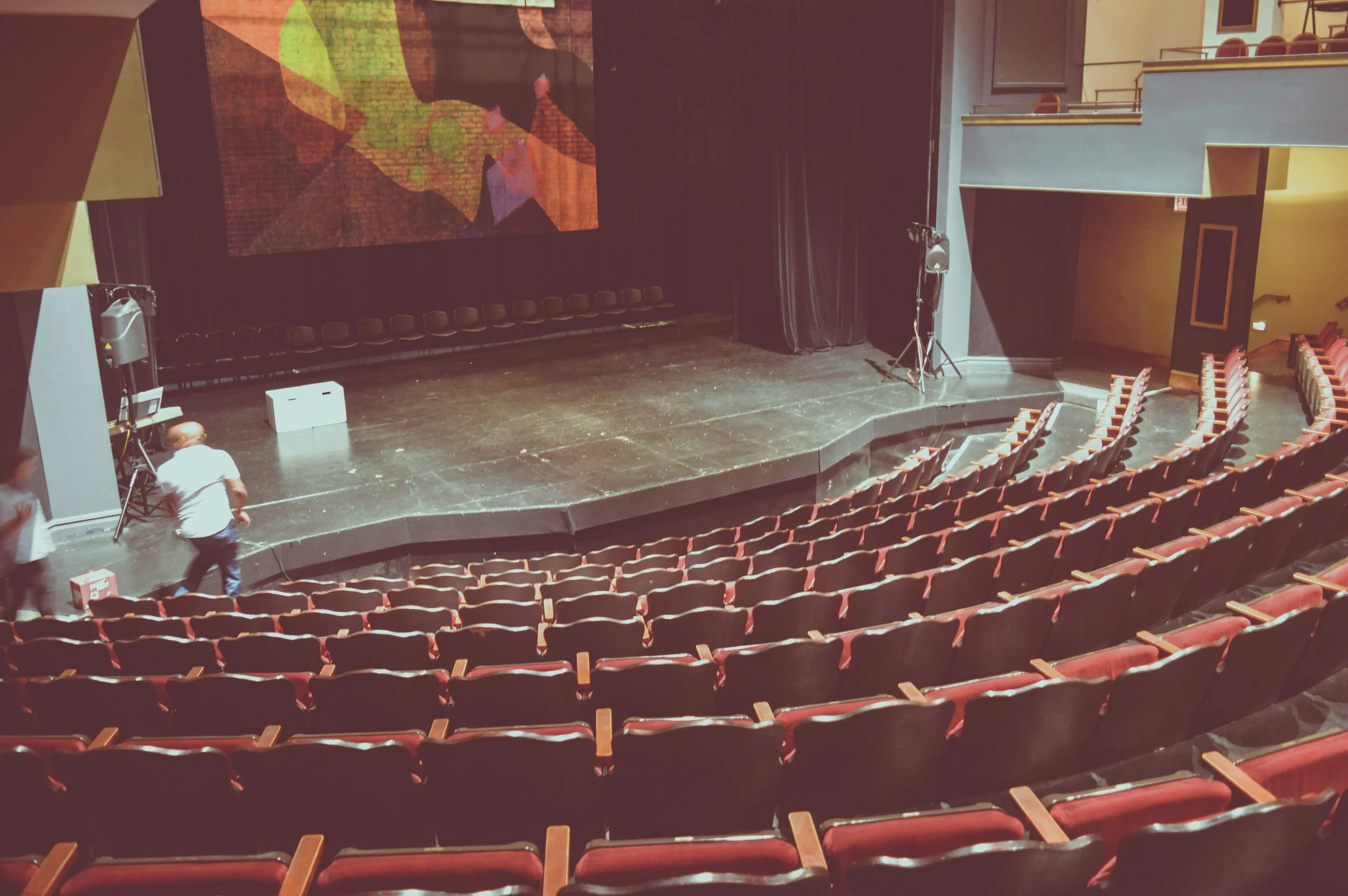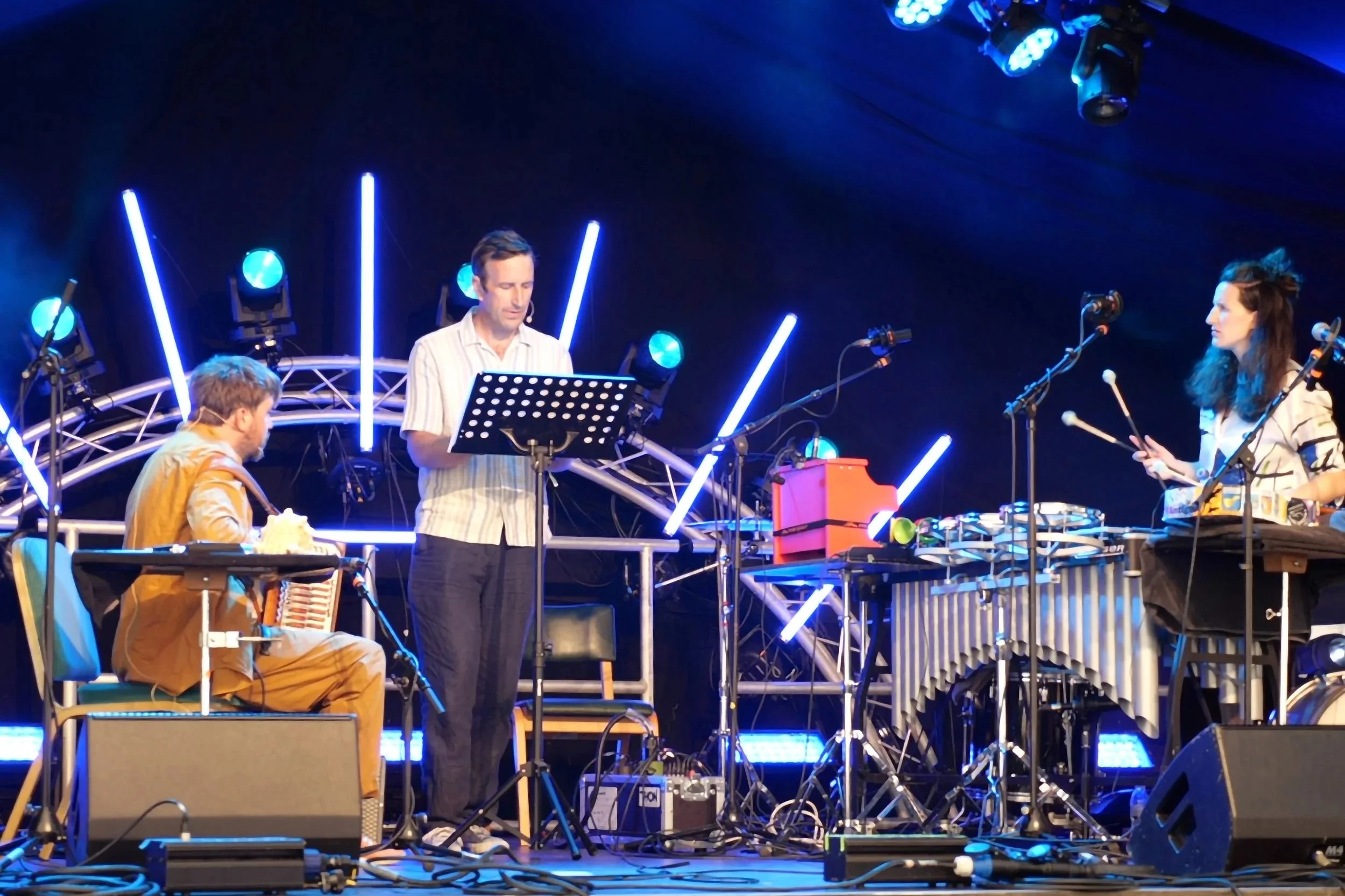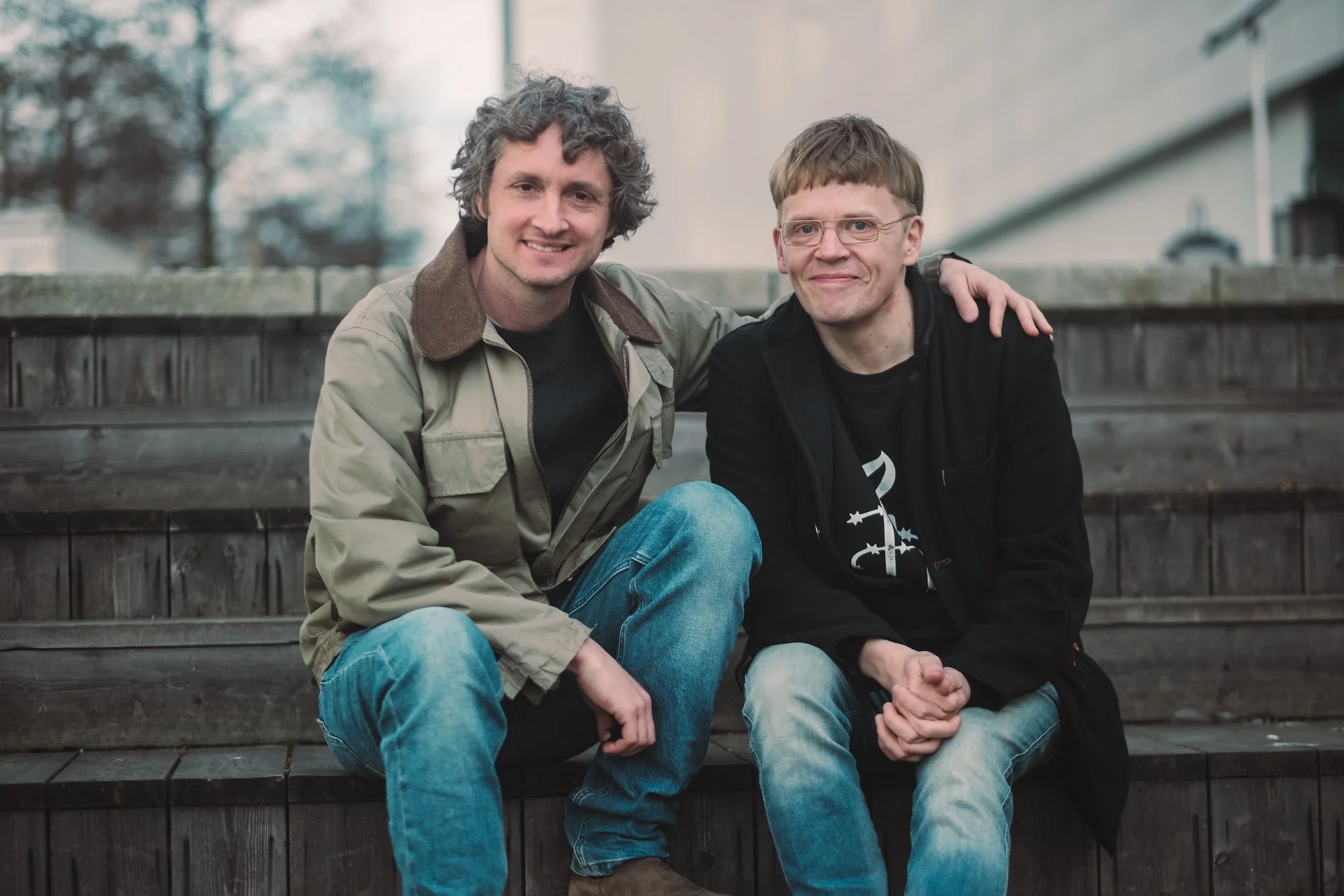Memory Slips to Meltdowns: Classical Music’s Taboos
What happens when a famous solo goes disastrously wrong in front of a huge audience? This is the premise of Solo, a new novel by author and musician Caroline Swinburne, which delves into the murky world of performance anxiety and the mental health struggles of classical musicians. In this guest blog post by the author, we get a sneak peek behind the novel and the difficulties of researching it due to the reluctance that many musicians have about destroying the illusion of super-human perfection that we’ve come to expect of our top musicians.
Author Caroline Swinburne
It’s every musician’s worst nightmare – a famous solo goes disastrously wrong in front of a huge audience. Whether the calamity is the result of performance anxiety, a memory lapse, a health crisis, an instrument malfunction or an audience distraction, the illusion of super-human perfection that we’ve come to expect of our top musicians is destroyed. In an era when every last blip is captured on video, such an episode may result in bad reviews, cancelled engagements, and players being sidelined. In any case – and whether or not the performer is deemed to be “at fault” – the experience will almost certainly have a negative effect on a musician’s mental health. In the very worst case scenario, it may mark the end of a previously highly successful career.
This is the premise of my debut novel, Solo, which tells the story of Cate, a fictional French horn player with a top orchestra until a miscarriage causes an onstage panic attack and she stops halfway through a famous solo. In one climactic moment, she loses her baby and her husband (who’d long felt sidelined by his wife’s beloved horn and for whom this was the last straw). And maybe worst of all for a woman as driven as Cate, she also loses the career which has been her life.
“The illusion promoted by the music industry that top musicians are invulnerable avatars to whom nothing bad can ever happen is depriving audiences of some great live performances. ”
My protagonist is, I repeat, fictional. If my story is inspired by anything, it’s by some of my own less than comfortable experiences on stage, both as an amateur horn player, and as a pianist. (I never rose anything like as high as Cate, or fell as low, but I – like most musicians – have had my moments.) So as with most novels, there’s probably more than a touch of autobiography in there. But my protagonist is most definitely NOT based on any other real-life musician.
If I’m sounding a bit defensive, it’s because it’s been far from easy to research this book. A few industry insiders were kind enough to share stories and thoughts, but quite a few wanted nothing to do with a premise which they regarded as the musical equivalent of a plane crash. In a world where you’re only as good as your last concert, my scenario clearly sent cold shivers down quite a few eminent musical backs.
‘Playing an instrument should be a joy, not a trauma,’ was a typically guarded response from one prominent musician who preferred not to be named.
Well yes, in an ideal world, few would argue.
But from the child with stage fright in the school concert, the amateur violinist in the local church hall with a broken string, or the conductor who suffers an onstage heart attack, disasters can happen to anyone.
Take the notoriously difficult trombone solo in Ravel’s Bolero, which went catastrophically wrong in a 1998 concert by the Vienna Philharmonic, leading to conductor Lorin Maazel to abruptly end the performance. It was rumoured that the performer must have been drunk; more kindly, there was speculation that his slide had become jammed.
Or the substitute harpist, in a 2006 Christmas performance of The Nutcracker with the Milwaukee Ballet, who opted to play a recently refurbished antique harp stored in the pit by the regular player. When the pedals jammed and slipped, the cadenza in the Waltz of the Flowers (surely one of the most famous harp solos of all time) collapsed, leaving audience members choking back laughter.
And how about the poor Portuguese pianist Maria João Pires, who was called in as a last-minute replacement for a Mozart concerto performance at the Concertgebouw in Amsterdam, only to realise when the orchestra began to play, that she’d misheard the Köchel number of the concerto, and was completely unprepared. She struggled through, but even decades later, when she relieved the experience in an interview broadcast on Classic FM, she was still reliving the trauma, describing it as “very scary”.
This was, surely, something of an understatement. It’s hardly surprising that such a traumatic event should bring on a touch of performance anxiety, even for someone as eminent as Pires. Most musicians are familiar with the sweaty palms, trembling hands and racing heart beats which are the norm before a big concert; many will even have learned to regard this “nervous excitement” as positively beneficial. But after suffering any sort of onstage calamity, it's not unusual for the problem to escalate to a point where it can threaten the most successful of careers.
‘[The musician] starts to imagine one error leading to the next error,’ says the Royal College of Music’s Professor Aaron Williamon. Williamon is an authority on the issue of performance anxiety and oversees the college’s Performance Simulator, designed to train students to cope with some of these scenarios. ‘In an environment centred around norms of perfection, things can soon start to escalate. It could be just a little trigger to begin with but things soon get serious when people start to associate those physical feelings with the [idea that] something bad might happen.’
The world’s first performance simulator at the Royal College of Music (photo by Phil Rowley, Royal College of Music)
In my book, the disastrous concert throws Cate into a downward spiral from which recovery becomes impossible. Her contract with the orchestra isn’t renewed; she’s too humiliated to go to take them to an employment tribunal and can’t face the thought of auditioning for an alternative, less high-profile job (especially as That Solo is on the audition repertoire list). Instead, she gives up the horn, reinvents herself online, trains as a language teacher, and travels the world determined to “have a good time”. She pretends to be tone deaf, and does her best to convince herself, and everyone else, that she’s not missing her music.
It's not until a decade later, when she returns to her home town in the bleak British Midlands to clear out her late mother’s house, that she’s drawn in to mentoring Sarah, a talented but under-educated teenage horn player with a local amateur orchestra. Without giving away any spoilers here, suffice to say that slowly, Cate starts to rediscover her true self and realise that without music, she is nothing.
But it’s too late for her to play professionally again, and this is sad, not only for my fictional protagonist, but for the concert-going public. The illusion promoted by the music industry that top musicians are invulnerable avatars to whom nothing bad can ever happen is depriving audiences of some great live performances. We need to accept that in live music, as in life, there will always be an element of risk.
Discover more musical novels in our bookshop
Solo by Caroline Swinburne will be published by The Book Guild on September 28th 2025. The paperback is available to buy on Bookshop.org or Waterstones (both affiliate links). We have a full musical bookshop on Bookshop.org, stocked with novels with a classical music theme. Buying from Bookshop.org supports both Alternative Classical and independent bookshops.











